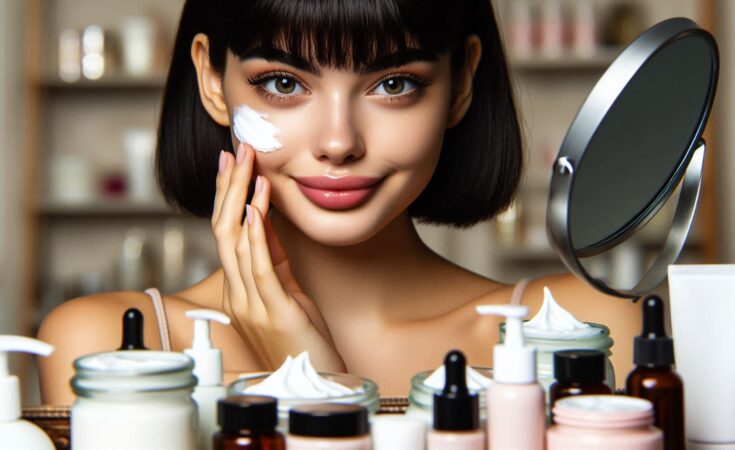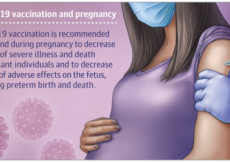
In recent years, there has been a noticeable shift among young people: instead of obsessing over body shape and size, they are placing greater emphasis on skincare and self-care routines that nurture healthy, glowing skin. This trend reflects a larger cultural change where personal well-being and self-acceptance are taking precedence over rigid physical ideals. For Gen Z, skincare has become the new self-expression, and the “perfect” body is no longer the ultimate goal—clear, radiant skin is.
So what’s behind this trend? And why are skincare routines and products becoming essential for today’s youth?
The Rise of Skincare: Self-Care as an Expression of Identity
A recent survey from Statista found that nearly 40% of American Gen Z consumers now actively use facial skincare products, such as cleansers, moisturizers, and serums, up from just 30% five years ago. This generation is embracing skincare as a way to boost self-confidence and embrace individuality, not just physical beauty.
Social media has played a crucial role in fostering this skincare revolution. Platforms like Instagram and TikTok are flooded with skincare tutorials, product reviews, and skin-positive influencers who promote a message of self-acceptance, self-care, and holistic well-being. These influencers often showcase skin conditions, like acne or eczema, in a way that is both transparent and celebratory, shifting the focus away from hiding flaws to openly caring for one’s unique skin.
Skin Health: The New Beauty Standard
While Gen Z is embracing a broader range of body shapes and sizes, their approach to skincare has become much more rigorous. According to a 2022 report by Mintel, 67% of 18-24-year-olds in the U.S. now view skincare as an essential part of their daily self-care routine, and 58% believe that having clear skin is more important than having a fit or muscular body. Skin health, in this sense, has become the ultimate standard of beauty, as smooth and clear skin symbolizes youthfulness, vitality, and a dedication to self-care.
This shift toward skincare is also reflected in consumer behavior. Research by NPD Group indicates that sales of skincare products, including facial cleansers, exfoliators, and masks, have been rising consistently among Gen Z since 2020. Skincare brands that emphasize inclusivity, clean ingredients, and sustainable practices are especially popular, as young people seek products that align with their values.
My son is 19 years old. At his age, I was very focused on my weight and hairstyle. I was, however, entirely myself—I could only “be that”! I understood that I didn’t have perfect skin, and despite good hygiene, I trusted that time would improve its texture. Today, I see that young people aged 19 to 26 are experts in skincare creams! Some come to my practice and seem to know every shelf at the local Sephora, a place I’ve rarely even visited. This approach reflects a strong need for validation, as if they’re making sure they’re aligned with those who take care of their skin and make it visible. Yet, much like the weight obsession that drove the previous generation, there are excesses here too, and the risk of not accepting oneself as they are.
Embracing “Perfectly Imperfect” Body Types
One of the most refreshing aspects of this new focus is how it allows Gen Z to embrace a wider range of body shapes without the intense societal pressure to maintain thinness. In fact, American Psychological Association data shows that younger generations feel less pressure to conform to the “thin ideal” than previous generations, largely thanks to the rise of body-positive influencers and brands that showcase plus-size, curvy, or athletic bodies.
This body diversity is amplified by brands like Aerie, Savage X Fenty, and even mainstream companies like Nike, who now feature models of all sizes and abilities in their campaigns. Rather than striving for a body type that society deems “perfect,” Gen Z is more inclined to appreciate natural beauty, imperfections included.
Skincare for Haircare: Expanding Self-Care Beyond the Face
The focus on skincare has naturally expanded to haircare, with more young consumers investing in scalp treatments, hair masks, and leave-in conditioners designed to promote scalp and hair health. As with skin, healthy hair is viewed as a reflection of personal well-being and care.
Data from Grand View Research shows that the global haircare market is expected to reach $116.33 billion by 2030, with the fastest growth among younger consumers. Haircare brands focusing on clean, minimal ingredients are especially popular, as Gen Z continues to prioritize products that reflect their commitment to health and sustainability.
The Pressure for “Perfect” Skin: A New Standard to Watch
While this shift toward skincare represents a positive move in many ways, there is also growing pressure to maintain a flawless complexion. Despite efforts to embrace “skin positivity” by showcasing acne, pigmentation, and other natural variations, the emphasis on clear, smooth skin can sometimes create unrealistic expectations.
According to a study by Psychology Today, nearly 56% of Gen Z respondents feel pressure to achieve perfect skin, even as they strive to maintain an authentic, relatable image. The constant availability of filters and photo-editing tools can lead young people to set impossible standards for themselves, where the desire for clear skin sometimes turns into a new kind of perfectionism.
Conclusion: A Balanced Approach to Beauty
The growing popularity of skincare over body aesthetics is a testament to Gen Z’s evolving perspective on beauty and wellness. By prioritizing skincare, haircare, and a holistic approach to health, they’re redefining self-care in ways that emphasize well-being over mere appearance. However, as the beauty standard shifts from body shape to skin quality, it’s crucial to continue promoting authenticity and self-acceptance—values that Gen Z champions so well.
For parents, this trend highlights an opportunity to discuss healthy beauty routines with teens, reinforcing the message that skincare and self-care should be about personal confidence and well-being, not perfection. As the concept of beauty continues to expand, it’s heartening to see a generation that values diversity, health, and self-expression in ways that previous generations never dreamed of.


































